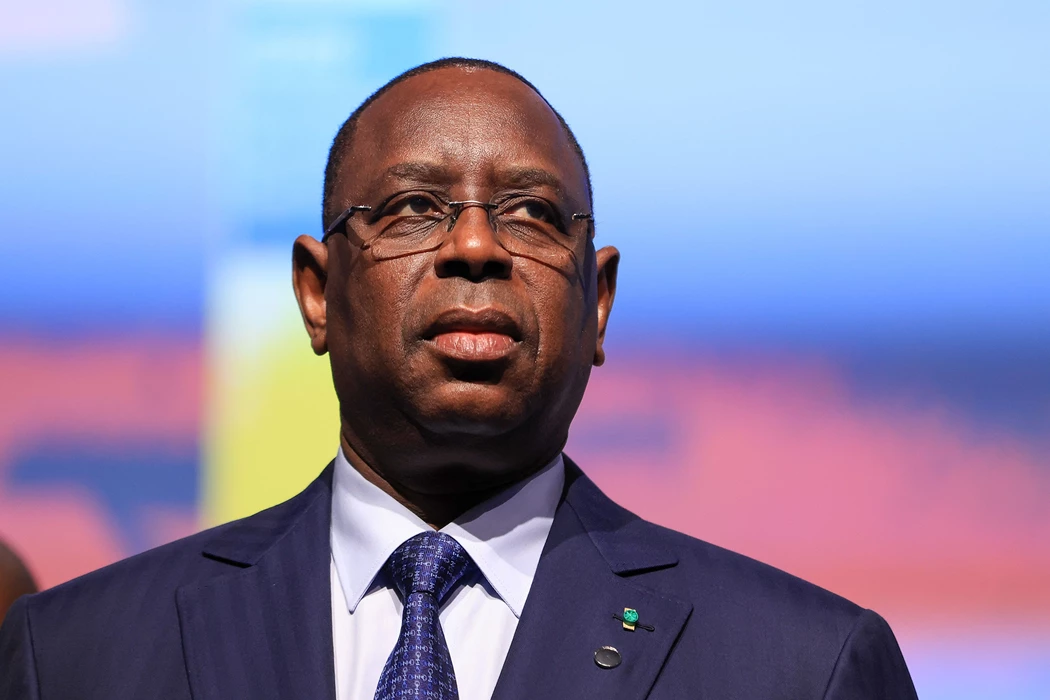Senegal’s Allies Urge Swift Election After Sall Calls off Vote
(Bloomberg) -- Senegal should end the “uncertainty” created by President Macky Sall’s announcement that elections scheduled for later this month have been postponed indefinitely, France’s foreign ministry said on Sunday.
A vote should be held as “quickly as possible and in compliance with the rules of Senegalese democracy,” according to an emailed statement from the foreign ministry. The West African regional bloc, the Economic Community of West African States, urged Sall to “continue to defend and protect Senegal’s longstanding democratic tradition”.
Authorities, in an unprecedented move, on Saturday delayed the Feb. 25 polls following an outcry against the disqualification of opposition candidates.
Lawmakers had ordered a probe into how the contenders were validated after the independence of two judges at the Constitutional Council, which decided on the final list of 20 who could run, was cast into doubt. Sall announced the delay in an address to the nation, without setting a new date.
“For several days, our country has been confronted with a dispute between the National Assembly and the Constitutional Council, an open conflict in the form of an alleged corruption affair of the council’s judges,” Sall said. “With the scars of the violence in March 2021 and June 2023 still fresh in mind, our country cannot lose itself to a new crisis.”
The political upheaval — the delay is the first for the West African nation, which has seen four largely peaceful transitions of power since independence from France in 1960 — may deter investment in an economy that’s forecast to expand at the fastest pace in almost five decades.
“It’s a democratic setback for Senegal. The president has just confiscated power,” Maurice Soudieck Dione, associate professor in political science at the Gaston Berger University, said by phone from Saint-Louis in the north of the country. “It’s worse than a third mandate. If Macky Sall is still in power after April 2 when his mandate ends he will be a president that’s neither legitimate or legal. At that point we can in fact talk about a constitutional coup.”
Senegal’s electoral code requires 80 days’ notice of an election, meaning the earliest a new vote could be held is at the end of April.
“I’m launching my electoral campaign tomorrow, in Dakar, with the candidates who have chosen to defend the Constitution,” former government minister and presidential candidate Thierno Alassane Sall said in a post on X Saturday.
Khalifa Sall, opposition candidate and former mayor of the capital Dakar, asked the population to rally to defend “our democracy”.
Security was reinforced in an area of Dakar on Sunday ahead of a planned opposition rally.
Ousmane Sonko, the politician who posed the biggest threat to the ruling coalition, and Karim Wade, the son of Sall’s predecessor Abdoulaye Wade, were among those omitted from the list of candidates challenging the ruling party’s aspirant, Prime Minister Amadou Ba.
The US State Department’s Bureau of African Affairs, in a post on X, urged participants in Senegal’s electoral process “to engage peacefully in the important effort to swiftly set a new date and the conditions for a timely, free and fair election.”
Government Secretary Abdou Latif Coulibaly resigned on Saturday after the elections were postponed. “Following the events at the National Assembly and the president’s address to the Senegalese people, I’ve decided to leave my post,” he said in a statement on his official Facebook page. The prime minister’s office confirmed Coulibaly’s resignation.
In a report issued last month, Human Rights Watch raised concerns over the credibility of the vote, saying it had been undermined by a crackdown on dissent and the targeting of Sonko’s supporters.
Bassirou Faye, the secretary-general of Sonko’s dissolved Pastef party, was expected to pose the biggest challenge to Ba. Sonko was disqualified from the race last month after he was convicted of libel for insulting the tourism minister and handed a six-month suspended prison sentence, and he has thrown his weight behind Faye’s campaign.
Sonko was also arrested on rape charges in 2021, sparking deadly protests, and more demonstrations followed after he was sentenced two years later. That case is still being appealed.
Late Entrants
Both Ba and Faye were late entrants to the race — Sall endorsed Ba as his chosen successor in September last year after he ruled out running for a third term, while Faye was only designated the opposition candidate last month.
Sall reiterated that he will step down after the election.
Wade’s Senegalese Democratic Party asked for six months postponement of the vote based on irregularities in the validation process, according to an emailed statement.
The International Monetary Fund forecasts Senegal’s economy will expand 8.3% this year as a $4.8 billion gas project comes online. The Greater Tortue Ahmeyim development, which straddles the border between Senegal and Mauritania and is being developed by BP Plc and Kosmos Energy Ltd., is supposed to start production this year.
©2024 Bloomberg L.P.





